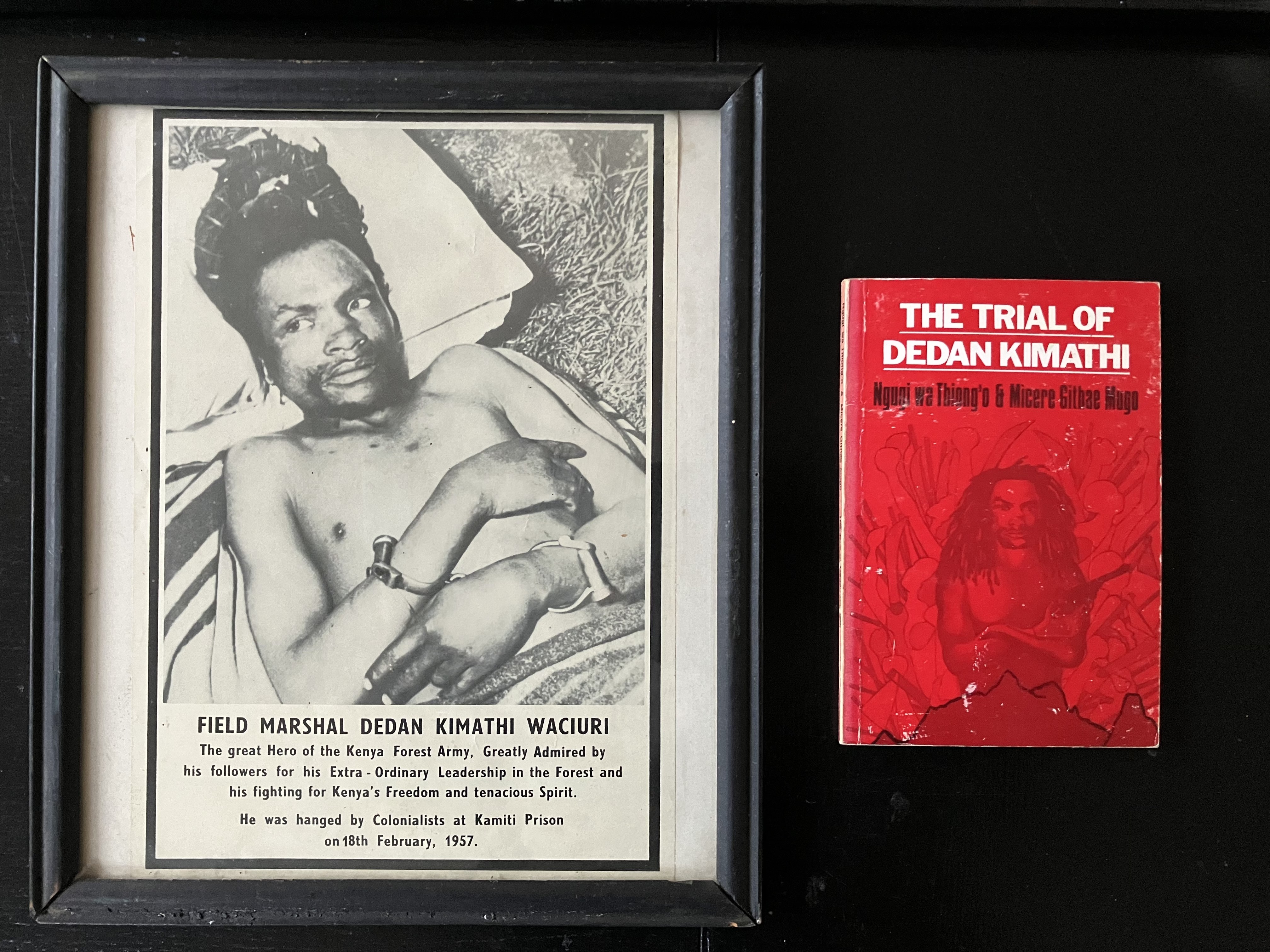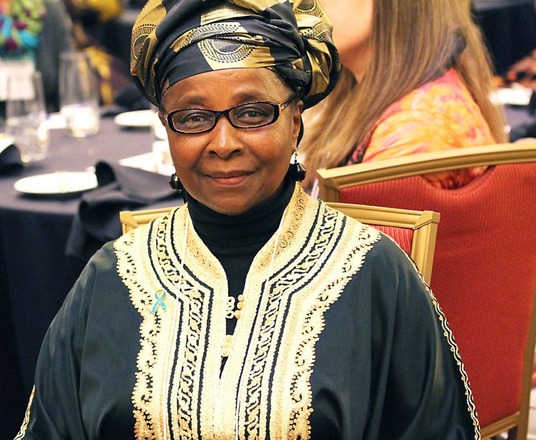A tribute to the late Kenyan poet, playwright and activist.
I remember that morning with Mĩcere Gĩthae Mũgo. It was in the corridors of the New Department of Literature at Nairobi University, which was born out of the abolition of the English Department. We lamented the fact that Jomo Kenyatta, the erstwhile hero of the Independence struggle, had surrounded himself with anglophiles and colonial loyalists like Charles Njonjo. Dedan Kĩmathi and the heroes and heroines of Kenya Land and Freedom were being taken off the calendar of the very independence they had sacrificed their lives. Mĩcere and I had the same thought. Write a play about Dedan Kĩmathi. But where and how to begin?
We drove to Karũnainĩ in Nyeri, Kĩmathi’s birthplace. We met men and women, some of whom had been Kĩmathi’s students. They pointed at a spot in the forest. That was where he was shot and wounded by an African traitor. In the course of our talks, I mentioned something about Kĩmathi’s death, thinking of his execution by the British in 1957. One of the women turned cold eyes at me. “Dead? Then go and show us his grave.”
That peasant woman gave us the theme of our play. To Kenyan people, Kĩmathi was still alive. Jomo Kenyatta and his cohorts of neocolonials could not erase his memory from the grateful workers and peasants of our country. The Trial of Dedan Kĩmathi would depict a defiant Kĩmathi, refusing to plead guilty or not guilty, thus rejecting the legitimacy of the laws of the colonial system. I will not plead to a law in which we had no part in its making, Kĩmathi tells the colonial judge.
The guest of honor on the opening night of the play at the Kenya National Theater in 1976 was Mũkami Kĩmathi, who we brought to Nairobi from her home in Njabini. Mĩcere Mũgo played the character of the defiant woman, modeled on Mũkami. Patrick Shaw and his squad of police murderers sat on the terraces of the Norfolk hotel. The Kĩmathi hunter, Ian Henderson, portrayed in our play as Shaw Henderson, used to stop for a drink and get applause from the white settlers for a job well done in the Hunt for Dedan Kĩmathi. At the end of the play, the real-life Mũkami Kĩmathi stood up and screamed: “That was my Kĩmathi,” and she stayed long into the night telling stories of the time to university students. Later Mĩcere Mũgo would accompany the other actors to Festac’77 in Nigeria, revealing Dedan Kĩmathi to Africa. Kĩmathi and the Kenya Land and Freedom Army were the first to break the global tread and arrogance of white settler colonies in the Americas, Canada, Australia, and New Zealand, declaring themselves independent. Kenya showed the way. Zimbabwe and South Africa would follow the example of Kenya.
Later I was called to the CID Headquarters in Nairobi. They asked me: why were Mĩcere Mũgo and I interfering with European Theater at the Kenya National Theater? A year later, I would be hauled into Kamĩtĩ Maximum Security Prison, and Mĩcere Mũgo into police cells for torture. Dictator Moi would force us into exile.
Mĩcere never gave up her struggles for social justice. Wherever there was a people’s struggle, like the armed struggle in Zimbabwe, Mĩcere was there. The generals of Zimbabwe’s struggle knew of her: she had organized for clothes and money to be sent to Zimbabwean freedom fighters, thus following in the footsteps of the woman character she portrayed in The Trial of Dedan Kĩmathi. The play itself was performed by Zimbabwe African National Union (ZANU) guerrillas and the militants of the African National Congress (ANC). Wherever a people fought for human rights and social justice, even in exile in the US, Mĩcere Mũgo was there, driven by her belief in Utu: I am because you are. She had a great sense of humor, and amidst her years of struggle with cancer, Mĩcere would still crack a joke.
There is another moment I recall. Uhuru Kenyatta invited me, Micere, and Mũkami Kĩmathi as his guests at the opening of the refurbished Kenya National Theater. Imagine this: The son of Jomo Kenyatta had brought Mĩcere Mũgo and Mũkami Kĩmathi to Nairobi as his special guests. The embrace between Mĩcere Mũgo and Mũkami Kĩmathi was touching to behold: perhaps both remembered the opening night of The Trial of Dedan Kĩmathi with Mĩcere Mũgo playing the character of the woman very much modeled on Mũkami Kĩmathi. Both have passed on in the same year.
Yes, the woman who had fought the British so that a woman like Mĩcere could be the first African woman to be admitted to the whites-only high schools in Kenya, yes, and who had fought so that Mĩcere would eventually become the first African woman Ph.D. in Kenya, the first African woman Dean of the arts at any University in Kenya, yes Mũkami Kĩmathi and Mĩcere Mũgo passed on the same year. But their spirits will live on in all those who take up the fight for our collective Utu.
This article is a repost from Daraja press by Africa is a Country
Kenyan writer Ngũgĩ wa Thiong'o is one of East Africa's most eminent literary figures



